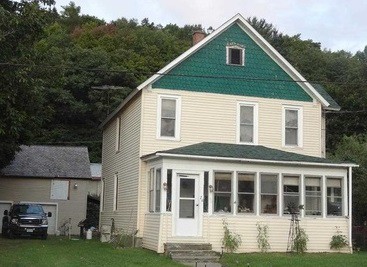
Broadband Yes
Time Warner Cable is spending taxpayer dollars received from New Yorkers to expand cable service in rural areas of the state, but primarily for the benefit of affluent residents — some that have sought cable and broadband service for their rural estates and vacation homes for years.
An analysis of publicly-available data by the New York Public Utility Law Project (PULP) from an earlier $5.3 million state rural broadband expansion grant paid to Time Warner Cable found that 73 percent of the money was spent extending cable service in zip codes where median incomes are significantly higher than surrounding areas that remain unserved. Time Warner Cable is relying on New York taxpayers to cover about 75% of the construction costs.
PULP’s Gerald Norlander has spent months seeking more information about how Time Warner Cable and its presumptive new owner Comcast collectively plan to address rural broadband issues in the state, but Time Warner Cable has fought to keep most of its plans secret, including projects funded in part by taxpayers.

Broadband No
Norlander’s current research included an analysis of 53 rural expansion projects that were included in the last round of broadband grant awards. He found Time Warner interested in expanding in affluent communities like Grafton in Rensselaer County. The part of the community targeted for expansion has a 10% higher median income than the rest of the county.
In a letter to the state’s Public Service Commission, Norlander argues Time Warner Cable’s desire to keep its rural broadband plans a secret may run contrary to New York’s universal broadband service goal to bring broadband to every customer that wants the service.
Targeting service on more affluent areas can result in higher revenue as wealthy customers are more likely to choose deluxe packages of services and are unlikely to fall behind paying their bills. But such decisions can also become politically untenable when a seasonal resident can access cable service for their six bedroom summer home while middle-income residents with school children up the road cannot.


 Subscribe
Subscribe
“The part of the community targeted for expansion has a 10% higher median income than the rest of the county.”
I think your point would be better if you had some actual figures on the actual Figures. If the county has say a $30,000 mediam income they would expand in an area that had an income of $33,000. The pictures of residences you chose to enhance your post are clearly not examples of a 10% difference in incomes.
98% of all statistics are made up.
Some actual Figures would help. The part about them wanting to keep everything a secret when taxpayer $ is involved should be a Red Flag. Everything needs to be open and fully disclosed to the public on broadband expansion if they use Tax payers money, Subsidies, Tax Breaks, etc… Of any kind.
Based on the way this article reads:
These ‘Grants’ of taxpayer dollars, for ‘expansion of cable service into rural areas’ were handed out without any ‘restrictions’ or terms and conditions, within the contractual documents, that allocated the funds.
Sounds like a failure on the part of the taxing and regulating authority.
That is a Failure on part of the Taxing and Regulating authority. This just means they wont give 99.9% of the Rural Areas broadband. You give the money to Local Communities or Local Ma&Pa ISPs and stuff gets done. You give it to a Corporation they just Pocket it and Increase Rates.
Affluent communities like Grafton NY????I live in Grafton and I wouldn’t consider it affluent by any means. Most of the residents are hard working blue collar people that may have an annual household income of 50-60k…sure there may be exceptions but the masses fall within that range. I’m not sure what the issue is with bringing better access to areas like Grafton so people that prefer to live in the country and not in a stuffy Albany Suburb can actually have adequate cable and internet service. If there is an issue it’s the regulation/ monitoring of the funds that they’re… Read more »
Actually, our group believes in universal broadband access for everyone. The issue here is that Time Warner took taxpayer dollars and invested them in a community which, in comparison to the communities they bypassed, would more likely be able to turn them a faster profit. We have no objections to people in Grafton getting better broadband.
You may find out views more broadly laid out in this article, which touches a bit better on public broadband funding allocations. : http://stopthecap.com/2015/04/07/n-y-broadband-improvement-fund-to-public-broadband-networks-dont-call-us-well-never-call-you/